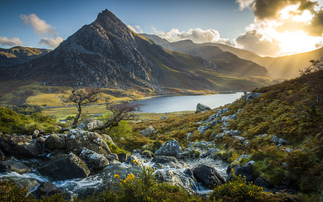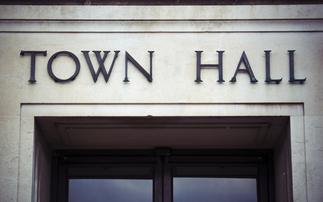"The UN climate process has moved out of the hearts of the environmentalists and into the hands of the economists"
Two decades of climate change negotiations have moved forward slowly but surely, helping an increasing number of developing countries to realise that sustainability is not something only the North needed and could afford to worry about. At the early stage of the international climate talks, there was an almost universal view from developing nations that climate change was not their problem. This was something the North had caused and that should be solved by industrialised nations.
Climate change was seen as a distant threat, something that would only affect future generations, so there was resistance to change. It wasn't urgent then. The notion was if developing countries were to act on climate change, someone else would have to pay for it, but look at where we are today in terms of developing country engagement on the issue of climate action. A climate deal at COP 21 would be the strongest ever reached by both rich and poor countries as 185 of the 195 countries have submitted their national plans for reducing greenhouse gas emissions. The number of countries making climate pledges has more than doubled when compared to six years ago in Copenhagen, sending out a clear signal that the UNFCCC process has progressed in the sense that there are no countries left now that will only take climate action if they are paid to do so. There are a significant number of developing countries that are committed to taking the initiative to combat the issue of climate change.
I understand the outside perception that the UN climate process appears to be glacial in its progress. And that is reflected very often in a lack of outcomes that the average man or woman in the street defines as success. There were some defining moments to look back at previous COPs. One of the Kyoto Conference's real achievements was that it woke up economists to the issue of climate change. In the period running up to Kyoto, climate action and climate science have largely been in the domain of environmentalists and in Kyoto, people began to realise that maybe climate change has something to do with the economics as well. This in itself was a progress.
The Bali Climate Change Conference was meaningful in that the wall between the North and the South was demolished and the foundation was laid for a comprehensive delivery plan around adaptation, mitigation, technology and finance. Architecture was created through the Bali Action Plan to give meaning to the implementation process. Durban was a critical moment because it put the pieces of Copenhagen together. It recreated the characteristics of the Bali Action Plan as the elements that should be taken forward. Now, the big advantage of the COP 21 conference is that there is much more of a common opinion of what the Paris outcome should be and needs to be.
The UN climate process has moved out of the hearts of the environmentalists and into the hands of the economists in the sense that although climate change in its origins and impacts is still very much an environmental issue, there's also an understanding that the fix is in the hands of the economists and not only the environmentalists. 25 years ago, there was a perception that climate change was an issue for governments to debate, however, there's now a recognition - even in the few remaining countries run by communist regimes - that we're not going to solve this without private sector engagement. This is a massive shift in awareness brought on by climate talks.
Although people rightly point to the financial obligations of industrialised countries, we cannot solve the problem with rhetoric and principles alone. Similarly, on the broader development of financial issues, there is a growing realisation that aid won't fix the climate catastrophe. We need an attractive market for the private sector, good capital management in countries and favorable financial policies to develop investment-ready projects. The Global Green Growth Institute (GGGI), a member-based international organisation that I serve as Director-General, helps countries to develop green growth plans that are "bankable" - projects that meet investor criteria and that will be implemented.
So it's a bit like aging. I know that I'm not nearly as beautiful as I was 30 years ago, but I only look a little bit worse every day.
Yvo de Boer is Director-General of the Global Green Growth Institute (GGGI), a Seoul-based international organisation. He was Executive Secretary of the United Nations Framework Convention on Climate Change (UNFCCC) from 2006 to 2010.
This article is part of BusinessGreen's Road to Paris hub, hosted in association with PwC.







